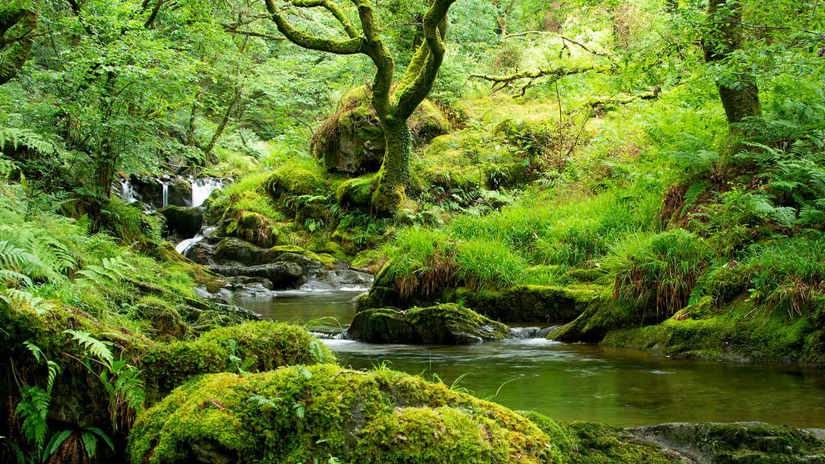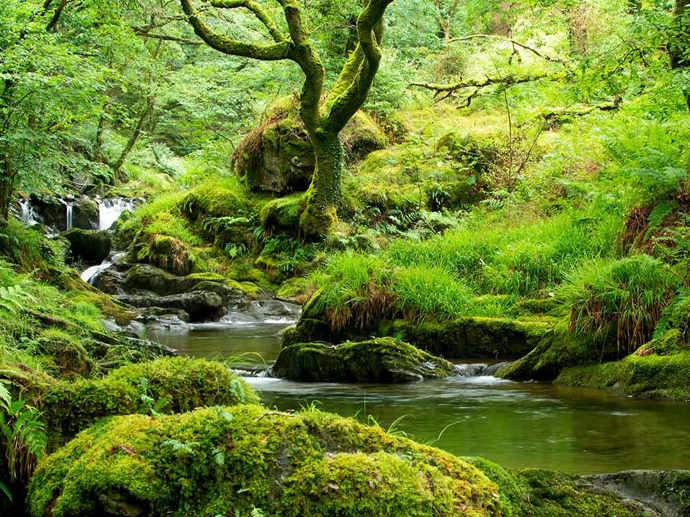

Temperate rainforest
Also known as Atlantic or Celtic rainforest, this special habitat is incredibly rare. Its lush conditions are perfect for scarce plants, lichens and fungi, as well as a number of unusual animals.
Lush, ancient and primitive, ferns are magnificent non-flowering plants that reproduce via spores. They are a common sight in woods, as many species are shade tolerant and can grow year round, bringing some welcome green to cooler months.
Trees woods and wildlife
Huge, widespread, ancient. Bracken is thought to be the most common plant in the world and is found on all continents except Antarctica. In the UK, they thrive in woodland.
Trees woods and wildlife
An evergreen beauty with not one, but two types of frond. Its medicinal qualities have helped treat ailments for centuries, while its leaves have been used to subdue hunger and thirst.
Trees woods and wildlife
Exotic looking and incredibly useful. The hart’s tongue fern is the only native fern that hasn’t got divided leaves. Spot it in damp, shady areas woodland.
Trees woods and wildlife
Poised, damp-loving, hardy. The scaly male fern is a tough old specimen that thrives in damp woodland, as well as on open heaths and hillsides.


Also known as Atlantic or Celtic rainforest, this special habitat is incredibly rare. Its lush conditions are perfect for scarce plants, lichens and fungi, as well as a number of unusual animals.